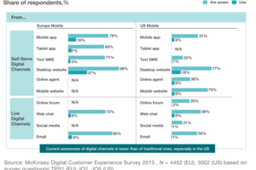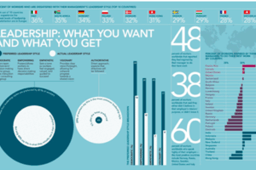Open invitation to all Global Mobility Professionals.

"It is better to be prepared for an opportunity and not have one than to have an opportunity and not be prepared.”
To those who don’t know, Witney M Young (pictured) was instrumental in breaking down the barriers of segregation and inequality that held back African Americans. In his eulogy President Nixon stated "he knew how to accomplish what other people were merely for”.
His quote illustrates the importance of operating in a spirit of expectation - When one operates in a spirit of expectation you're compelled to make preparations for that which you are expecting.
So what has this got to do with Global Mobility professionals and their future?
In Deloitte’s June 2015 report ‘The Changing Role of Global Mobility’ it showed five barriers to Global Mobility and its future success. The third and fourth largest barriers to success were ‘lack of training’ and ‘less developed skills’. This also was ranked as the number one barrier for Global Mobility professionals in EMEA.
So, how big of an issue is this really?
Imagine you’re wrongfully accused of and awaiting trial -You'll need the best specialist help to defend yourself, so you employ a small group of 10 solicitors. On the morning of your first day in court you find out only six of the solicitors have limited training and four of them (almost half) have never received any training at all.
How do you feel about your defensive team? Are you confident you'll receive a successful outcome?
Its a rather dramatic way to illustrate the fact but in the 'specialist' world of global mobility the statistics I quoted above are the reality. The report states 40% of Global Mobility professionals do not receive any training to support them and companies that do support Global Mobility professionals with training we typically provide only 1-2 types of training from the list below;
- Global Mobility - Fundamentals training
- Coaching and mentoring.
- Strategic objectives training.
- Effective leadership training.
- Communication and Presentation training.
- Consultative skills training.
- Relationship building skills.
This, you’ll agree, indicates a significant gap in providing Global Mobility Professional's with more training and support. Interestingly, the top recommendation (and quickest fix) to help achieve 'Business partnership' status was the provision of 'training'.
The good and bad news.
First the bad news, its disappointing that learning and developing is keeping Global Mobility professionals from realising their true potential within the business but the good news is that this is something which can be acted upon, resolved, managed and measured quickly. In short, its a quick fix to remove this barrier and enable Global Mobility professionals.
So, why isn’t there more training?
At first glance one could say that learning and development (or the training budget) has shrunk within business.
But it appears not.
According to Bersin, who surveyed 100's of EMEA organisations, found that learning and development budgets had increased and that companies were spending £1,443 per employee (2015) on formal training. His team also found that the number of training hours per employee had also risen from 14.5 in 2012 to 16.2 in 2015.
So why does it seem Global Mobility professionals have been left behind, and what can we do about this?
As the Managing Partner of a company that designs and delivers learning I shall be (over the coming weeks) reviewing and discussing with industry thought leaders on what and how the industry can deliver improved support to Global Mobility Professionals in this area.
But we'll need your help?
My invitation to you is to help us understand what your barriers to training are. Is it money? Is it time? Is it putting together a business case for it, or perhaps something else?
We'd like to know what your ideal learning experience would be, is it a workshop, one to one coaching, video/skype, train the trainer program or seminar experience, what do you believe would be best for you?
So, please either share here on this forum, or feel free get in touch directly so we can follow Witney M Young's advice and "be prepared for the next opportunity".
I shall return in early July to and share my findings, till then I look forward to receiving your thoughts and thank you in advance for your contributions.




Please sign in or register for FREE
Sign in OR sign up to become a registered The Forum for Expatriate Management website user
Subscribe here